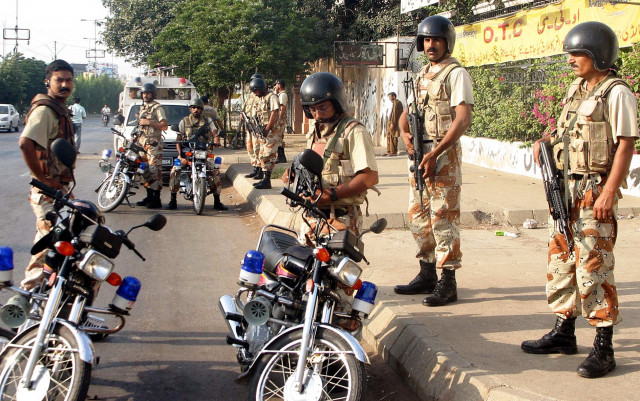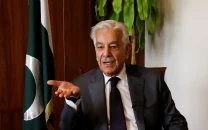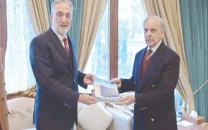LHC affirms Rangers' authority
Court dismisses post-arrest bail of a drug peddler for allegedly having heroin

The Lahore High Court (LHC) has rejected the impression that Pakistan Rangers have no authority to make arrests or detain the offenders under the Control of Narcotic Substances Act, 1997 (CNSA 1997).
The development came as LHC's Justice Muhammad Amjad Rafiq dismissed the post-arrest bail of a drug peddler for allegedly having 1060 grams of heroin.
The arguments of counsel for petitioner Maqbool Ali, who is also the accused, revolved around the claim that Pakistan Rangers have no authority to arrest and detain the offenders under the Control of Narcotic Substances Act, 1997 (CNSA 1997).
He further implored the court that the petitioner, being the owner in possession of adjacent lands, had once resisted interference with his property rights by the Rangers, who then retaliated by falsely implicating him in this case. He argued that a story was concocted, claiming two accused managed to run away from the crime scene, which was not believable, given the strength and arms available to the Rangers.
Officers from Pakistan Rangers were carrying a notification dated December 1, 2010, issued by the Government of Pakistan (Revenue Department) Federal Board of Revenue. This notification entrusted officers of Pakistan Rangers and the Frontier Corps (Balochistan, Khyber-Pakhtunkhwa, including FATA) operating within their respective jurisdictions with the functions of Customs officers under the provisions of the Customs Act, 1969.
Such functions shall be limited to a 20-kilometre radius from the international borders. Thus, they claim the authority to inspect any suspected person within this area. A review of the notification shows that it was ordered to remain in force until June 31, 2011, and thereafter, it was to be reissued or extended subject to the satisfactory performance of the aforementioned departments. However, Rangers officers claim that it is still operative.
Justice Rafiq observed that the claim made by the counsel for the accused that the arrest by a sub-inspector of Pakistan Rangers had vitiated the entire proceedings could not be upheld for two substantive reasons. Firstly, with all just legal exceptions, officers of various categories within Pakistan Rangers are also authorized to exercise powers under the relevant provisions of the Customs Act, 1969, in light of the 2010 notification.
Secondly, after arresting, searching, and seizing narcotics, officers of Pakistan Rangers handed over the petitioner to the local police, a power that is available even to private individuals under Section 59 of the CrPC. Thus, no illegality has been observed, particularly since the case was investigated by the police.






















COMMENTS
Comments are moderated and generally will be posted if they are on-topic and not abusive.
For more information, please see our Comments FAQ